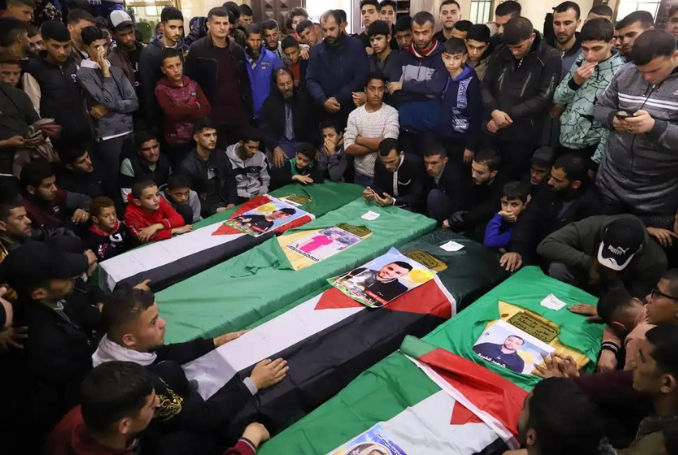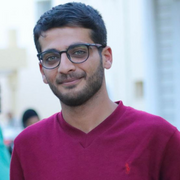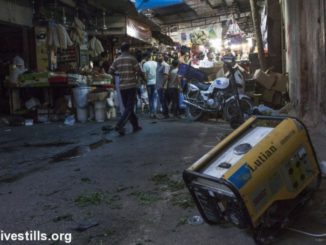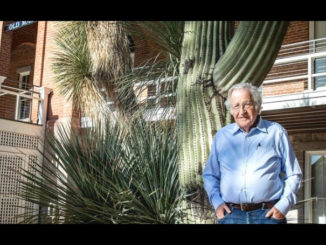
By Majd Salem
“Our sons are being thrown into the sea and the fish are eating them.”
I was lucky. After I finished high school in Gaza in 2016, I got a scholarship to college in Tunisia. I needed to be free from the daily fears and tensions in Gaza in order to concentrate on my studies. I still remember my first days in Tunis. Everything was new and exciting.
Right before my eyes was the metro I had only seen on television and in movies at home. Out of the metro window, I saw mountains for the first time in my life. Gaza is a coastal city; it has no mountains. Most mountains in Palestine are in the West Bank, where Gazans cannot go because of the Israeli siege. I was so entranced I forgot to get off at the station I was headed to.
It took a while living in my new country for me to realize that life here could also be harsh, and economic prospects for young people here, too, could be bleak. Gaza and Tunisia are alike in that way, I thought. Little did I know how tragically true that would be.
Tragedy in the Mediterranean
On September 21, 2022, a boat carrying 19 Tunisian youths – who were fleeing the country’s dismal economy by trying to emigrate to Italy illegally – sank in the Mediterranean, several miles offshore. Family members who had lost contact with their sons accused the state of being negligent in carrying out search operations for survivors.
So on October 10, local fishermen decided to search themselves. What they found exposed far more than anyone expected. The fisherman recovered a number of bodies of young people and turned them over to the Tunisian Coast Guard for identification. Examination of the bodies, along with sodden passports and other documents found with them, revealed that they were not Tunisian emigrants, but Palestinians.
Their boat, en route to Europe, had set sail from Libya with 11 young Palestinians onboard. Eight of the drowning victims were identified as Gazans. Their names are Talal Al-Shaer, Muhammad Al-Shaer, Adam Shaat, Aheed Abu Zureik, Younus Al-Shaer, Muhammad Qeshta, Moqbel Aateem, and Khalil Fares. They were from my homeland, and like me, in search of a better life
According to The Palestinian Central Bureau of Statistics, youth in Gaza (18 to 29 years) are 21.5% of its population.
Many are university graduates in different specialties. Illiteracy rates in Gaza are among the lowest in the world, yet unemployment in Gaza is one of the highest; nearly 80% of Gaza’s youth are unemployed.
Living conditions are often unbearable. A United Nations report issued in 2012 stated that Gaza would be unfit for human habitation by 2020.
At the beginning of 2023, things are even worse. The Israeli siege and constant threat of attack create a chaotic, constricting environment that breeds hopelessness and desperation. The Gaza Strip is often described as the biggest open-air prison in the world. Young people are driven to find a way to get out, even if it’s dangerous because nothing could be as bad as what they are forced to live with every day in their beleaguered city.
The Strangers Graveyard
There is a cemetery in the coastal city of Zarzis in Southern Tunisia called The Strangers Graveyard. The remains of people who drowned trying to get from Libya to Europe, whose bodies washed up on the shore, are buried there. Only some of the more than 400 graves have a name on them; the rest are unmarked
Ghassan Bourguiba is a Tunisian civil activist from Zarzis who was following the case of what he thought were his local people drowning in an attempt to get a better life. When he discovered that the dead were Palestinian and not Tunisian, he uploaded a video to his Facebook account.
On it, one of the Tunisian parents who had lost their sons in the sunken boat said, “Even though the dead we found near our city are Palestinians and not our lost sons, we will have a funeral for them.”
“We will pay for their burial in marked graves in our town cemetery, and not put them in The Strangers Graveyard. We consider them like our sons,” he added.
In Gaza, a relative of Younus Al-Shaer’s saw the video and contacted Bourguiba with a list of all those who had been missing since contact was lost with their boat. Bourguiba recalled the telephone call he made to Al-Shaer’s family in Gaza confirming that he was among the dead. “No one can imagine the deep sorrow and pain I experienced when I had to tell them the destiny of their son,” he said.
Al-Shaer’s sister told local media that she had begged her brother not to attempt to emigrate from Gaza. She implored him to stay in university to complete his studies. But because of the terrible living conditions in Gaza, she said he told her, “You see the huge number of unemployed graduates here! I don’t want to be like them when I finish studying.” He would go to Europe and find work, he told her, “I will become successful and pay you back and make sure you are all happy.”
On December 18, the eight bodies of the drowned young men were passed through the Rafah Crossing Border from Tunisia into Gaza. Their families were finally able to view them and say their tearful goodbyes. Relatives, friends, and fellow Gazans held a huge funeral for all of them together, and they were buried at last in their homeland. One of the grieving mothers lamented the tragic end for so many young Palestinians: “People all over the world eat fish, except for Palestinians. Our sons are being thrown into the sea and the fish are eating them.”
I don’t know what these emigres would have found had their boat reached Italy. I don’t really know what my own future will be. Before I left Gaza, I held hope that the situation there would improve by the time I finished my studies and came back home. I hoped the Israeli siege on my city would be lifted, industries that were destroyed by escalations and wars would be rebuilt and the unemployment rate reduced. I hoped that I could come back, find work and enjoy time with my family and friends. But now after more than 6 years, the situation there has only become worse.
So many young people are trying to get out. We are sons and daughters from Gaza, from Tunisia. We have become family in our shared grief, and family in our aspirations to mark our lives, not our graves, by hope, kindness, and accomplishment, and to find a safe harbor for us all.

– Majd Salem is a Palestinian freelance journalist and a journalism master’s degree student in Tunisia. We Are Not Numbers contributed this article to The Palestine Chronicle.








And the Sephardic Jews prosper in Tunis through their unofficial Embassy at the ironically called Institute War Peace Reporting (IWPR) at the Millennium Centre in La Marsa.
Interfering in Libya and coercion of poor Libyans whom are none the wiser and paying them to report the narrative of the Zionist regime inside of Libya and the IWPR being funded by Jerusalem, London and Washington.
Tunisia a victim of Western Governments and an Arab Spring that never was….